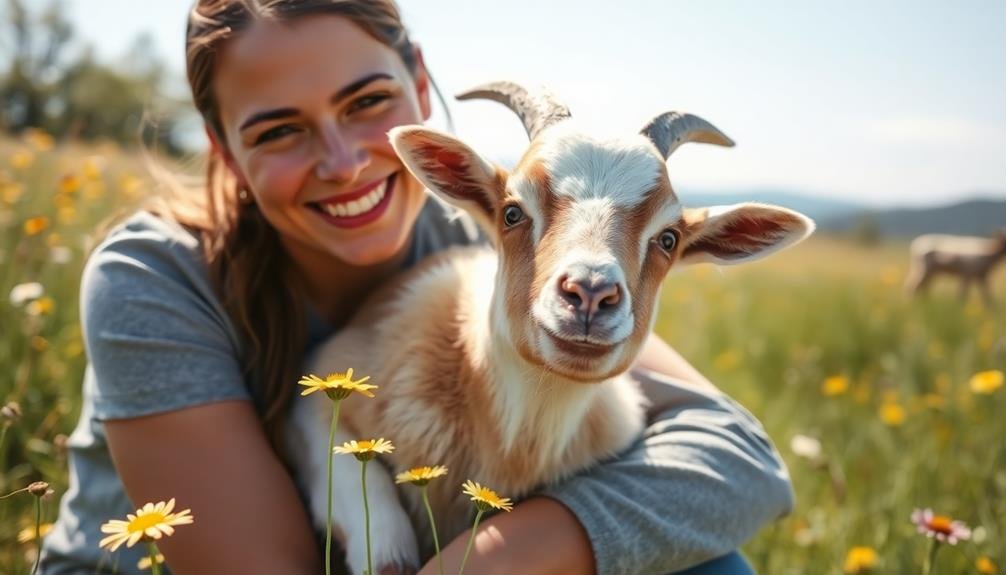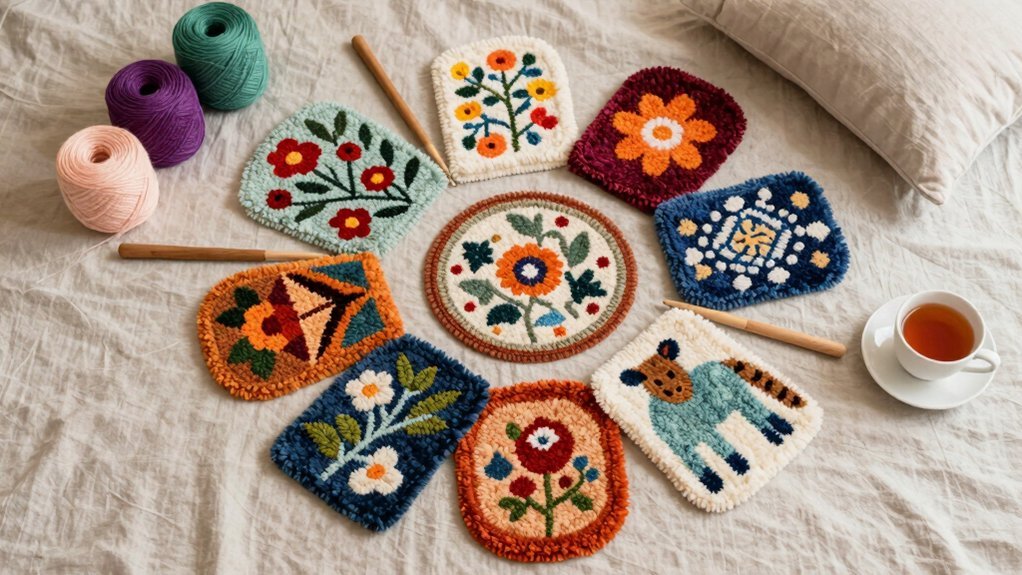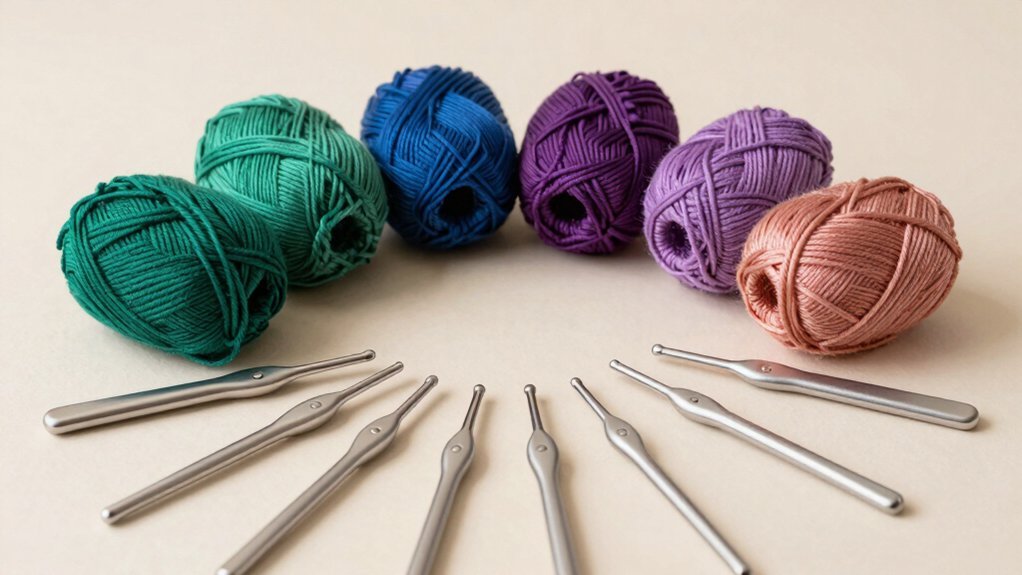Therapy animals can be powerful allies in your battle against depression. Dogs offer unwavering companionship and encourage physical activity, while cats provide soothing purrs and low-maintenance comfort. Horses offer unique emotional healing through equine-assisted therapy. Rabbits and guinea pigs offer gentle, tactile comfort with minimal care needs. Fish can create a meditative experience, and birds bring cheerful melodies to brighten your day. For unique support, consider miniature pigs, goats, or alpacas, each offering distinct benefits from emotional intelligence to stress reduction. These furry, feathered, and finned friends can provide the emotional support you need to navigate challenging times. Explore further to discover which animal might be your perfect match.
Dogs: Faithful Companions

Loyalty personified, dogs have long been recognized as excellent therapy animals for those battling depression. Their unwavering companionship and ability to provide unconditional love make them invaluable allies in the fight against mental health challenges.
When you're feeling down, a dog's enthusiastic greeting can instantly lift your spirits and remind you that you're valued and loved.
Dogs encourage physical activity through walks and playtime, which naturally boosts mood-enhancing endorphins. They also promote social interaction, as fellow dog owners often strike up conversations during outings. This can help combat the isolation often associated with depression.
The responsibility of caring for a dog can provide structure and purpose to your day, helping you maintain a routine even when motivation is low. Their constant presence offers comfort and a sense of security, reducing feelings of loneliness and anxiety.
Studies have shown that petting a dog can lower blood pressure and reduce stress hormones. The simple act of focusing on your furry friend can help redirect negative thoughts and provide a calming distraction from depressive symptoms.
With their intuitive nature, dogs often sense when you're feeling low and offer extra cuddles and attention when you need it most.
Cats: Calming Feline Friends
While often perceived as aloof, cats can be incredibly soothing companions for those struggling with depression. Their gentle purring and soft fur provide a calming sensory experience, helping to reduce stress and anxiety.
You'll find that cats are low-maintenance pets, requiring less attention than dogs, which can be ideal if you're feeling overwhelmed.
Cats' independent nature can actually be beneficial for your mental health. They offer companionship without demanding constant interaction, allowing you to engage on your own terms. This can be particularly helpful when you're feeling socially drained or need quiet time to recharge.
The rhythmic motion of petting a cat can be meditative, helping to ground you in the present moment and alleviate depressive thoughts. Additionally, caring for a cat gives you a sense of purpose and routine, which is essential when battling depression.
Studies have shown that cat owners have lower blood pressure and reduced risk of heart disease. The presence of a feline friend can also boost your mood by increasing serotonin and dopamine levels in your brain.
Horses: Equine-Assisted Therapy

Through equine-assisted therapy, horses offer a unique and powerful approach to treating depression. These majestic animals provide a non-judgmental presence that can help you feel more at ease and open to emotional healing. As you interact with horses, you'll develop a sense of trust and connection, which can boost your self-esteem and reduce feelings of isolation.
Equine therapy involves various activities, such as grooming, leading, and riding horses. These tasks require focus and mindfulness, helping you stay present in the moment and temporarily escape negative thought patterns. You'll also learn to communicate effectively with the horse, improving your nonverbal skills and emotional intelligence.
Horses are highly intuitive and respond to your emotions and body language. This mirror-like quality forces you to confront your own feelings and behaviors, promoting self-awareness and personal growth.
The physical aspect of working with horses can also increase your serotonin levels, reducing symptoms of depression. As you build a relationship with these gentle giants, you'll gain confidence, develop problem-solving skills, and experience a sense of accomplishment.
This empowering process can greatly improve your mood and outlook on life.
Rabbits: Soft and Gentle
Rabbits offer a unique therapeutic experience with their soft fur and gentle nature.
You'll find their calming presence and warmth comforting, especially during stressful times.
These low-maintenance companions provide tactile comfort therapy, allowing you to soothe yourself by petting and cuddling them.
Calming Presence and Warmth
As you explore the world of therapy animals for depression, you'll find that rabbits offer a unique and soothing experience. Their calming presence and warmth can provide immediate comfort and relief from anxiety and stress.
When you hold a rabbit, you'll notice their soft fur and gentle nature, which can help lower your heart rate and blood pressure.
Rabbits are naturally quiet animals, making them ideal companions for those who find loud noises overwhelming. Their peaceful demeanor can create a serene environment, allowing you to focus on relaxation and mindfulness.
You'll appreciate how rabbits communicate through subtle body language, encouraging you to become more attuned to non-verbal cues and improving your emotional intelligence.
The act of petting a rabbit can release endorphins, promoting feelings of happiness and well-being. Their warm bodies and steady breathing can also have a grounding effect, helping you stay present in the moment.
As you care for a rabbit, you'll develop a sense of purpose and routine, which can be beneficial in managing depression symptoms.
The bond you form with your furry companion can provide unconditional love and support, essential elements in the healing process.
Low-Maintenance Companionship
When considering therapy animals for depression, rabbits stand out as an excellent low-maintenance option. These gentle creatures offer a soft, cuddly presence that can instantly soothe your nerves and lift your spirits.
You'll find that caring for a rabbit is relatively simple, making them ideal companions for those who may struggle with daily tasks due to depression.
Rabbits don't require walks or extensive grooming, and they're content with a spacious indoor enclosure. Their quiet nature means they won't disturb you or your neighbors, making them perfect for apartment living.
You'll appreciate their calming influence as you watch them hop around or gently stroke their fur.
Here are three ways rabbits can positively impact your mental health:
- Provide a sense of routine and purpose through daily care
- Offer silent, judgment-free companionship during difficult times
- Encourage mindfulness and presence through their gentle interactions
While rabbits may not be as interactive as dogs or cats, their low-maintenance nature and soothing presence make them an excellent choice for those battling depression.
You'll find that these furry friends can offer comfort and companionship without adding stress to your daily life.
Tactile Comfort Therapy
Touch plays an essential role in managing depression, and rabbits excel at providing tactile comfort therapy. Their soft, plush fur invites gentle petting, which can lower your heart rate and blood pressure while releasing feel-good hormones like oxytocin.
As you stroke a rabbit's velvety ears or fluffy body, you'll experience a calming sensation that can help alleviate anxiety and stress.
Rabbits are particularly well-suited for tactile therapy due to their size and temperament. They're large enough to offer substantial physical contact but small enough to sit comfortably on your lap. Many rabbits enjoy being held and cuddled, allowing you to fully embrace their soothing presence.
Their naturally calm demeanor can help you relax and focus on the present moment.
When you're feeling overwhelmed, spending time with a rabbit can provide a grounding experience. The repetitive motion of petting can be meditative, helping to quiet racing thoughts.
You'll find that the simple act of touching and interacting with a rabbit can offer a much-needed distraction from negative emotions, providing a gentle respite from the weight of depression.
Guinea Pigs: Pocket-Sized Comforters

Three surprising benefits make guinea pigs excellent therapy animals for those battling depression. These small, gentle creatures offer unique comfort and support that can greatly impact your mental well-being.
Guinea pigs are low-maintenance pets that don't require excessive space or exercise, making them ideal for people with limited energy or mobility. Their soft fur and calm demeanor provide a soothing tactile experience, which can help reduce stress and anxiety. You'll find that holding and petting a guinea pig can be incredibly calming, offering a sense of connection and companionship.
Additionally, their natural curiosity and playful nature can bring joy and laughter into your daily routine.
Here are three ways guinea pigs can help combat depression:
- Provide a sense of purpose through daily care routines
- Offer non-judgmental companionship and unconditional love
- Encourage social interaction with other guinea pig enthusiasts
Guinea pigs' gentle vocalizations, such as purring and chirping, can be particularly comforting. These sounds can help create a peaceful atmosphere in your home, promoting relaxation and reducing feelings of loneliness.
Their predictable behavior patterns can also provide a sense of stability and routine, which is often beneficial for those struggling with depression.
Birds: Cheerful Feathered Therapists
While guinea pigs offer a calming presence, birds bring a different kind of energy to therapy animal interactions. These feathered friends can provide cheerful companionship and a sense of purpose for those battling depression. You'll find that birds' melodious songs and vibrant personalities can lift your spirits and create a more positive atmosphere in your home.
Interacting with birds can be both stimulating and rewarding. You'll need to care for them, which gives you a daily routine and a reason to get out of bed. Watching them play, feeding them, and even teaching them tricks can be engaging activities that help distract you from negative thoughts.
Birds like parakeets, cockatiels, and canaries are popular choices for therapy animals. They're relatively low-maintenance and can adapt well to indoor environments. You'll find that their social nature encourages you to interact and communicate, which can be beneficial when you're feeling isolated.
Moreover, birds' ability to mimic human speech can provide a unique form of companionship. Hearing a bird say "I love you" or your name can be incredibly uplifting and make you feel less alone in your struggle with depression.
Fish: Aquatic Stress Relievers

Fish tanks can serve as mesmerizing focal points in your home, offering a unique form of aquatic therapy for those battling depression. The gentle movement of fish and the soothing sound of bubbling water create a calming atmosphere that can help reduce stress and anxiety.
You'll find that watching fish swim can be a meditative experience, allowing you to focus on the present moment and temporarily escape your worries.
Caring for fish can also provide a sense of purpose and routine, which is essential when dealing with depression. You'll need to feed them regularly, maintain water quality, and keep their environment clean. This responsibility can give you a reason to get up each day and engage in a nurturing activity.
Here are three ways fish can positively impact your mental health:
- Lowering blood pressure and heart rate
- Improving sleep quality by promoting relaxation
- Boosting mood through the release of endorphins
Fish don't require the same level of interaction as other pets, making them ideal for those who may feel overwhelmed by more demanding animals. Their low-maintenance nature allows you to enjoy the benefits of pet ownership without added stress.
Miniature Pigs: Intelligent Emotional Support
Miniature pigs have emerged as unexpected yet highly effective emotional support animals for those battling depression. These intelligent creatures form strong bonds with their owners, providing companionship and a sense of purpose. You'll find that caring for a mini pig can be a rewarding experience, offering structure to your daily routine and a reason to get out of bed each morning.
Mini pigs are known for their high emotional intelligence, often picking up on their owner's moods and responding with comforting behaviors. They're also highly trainable, which can boost your confidence as you teach them new tricks. Here's a comparison of mini pigs to traditional therapy animals:
| Characteristic | Mini Pigs | Dogs/Cats |
|---|---|---|
| Lifespan | 12-18 years | 10-15 years |
| Intelligence | Very high | High |
| Allergens | Low | High |
| Space needed | Medium | Varies |
| Bonding | Strong | Strong |
While they require more specialized care than dogs or cats, mini pigs can offer unique benefits for depression sufferers. Their playful nature and affectionate personalities can help lift your spirits and provide a constant source of joy and companionship in your life.
Goats: Playful Farm Companions

Numerous individuals battling depression have found unexpected solace in the company of goats. These playful farm companions offer a unique form of emotional support that can brighten even the darkest days.
You'll find that goats are curious, energetic, and surprisingly affectionate, making them excellent therapy animals for those struggling with mental health issues.
Interacting with goats can provide a much-needed distraction from negative thoughts and emotions. Their silly antics and mischievous behavior often elicit laughter and joy, helping to lift your mood naturally.
You'll also benefit from the physical activity involved in caring for goats, which can boost endorphins and improve overall well-being.
Here are three ways goats can help combat depression:
- Provide a sense of purpose through daily care routines
- Encourage outdoor activity and connection with nature
- Offer unconditional affection and non-judgmental companionship
Alpacas: Fluffy Anxiety Reducers
When it comes to reducing anxiety, you might be surprised to learn that alpacas are excellent therapy animals. These fluffy, gentle creatures have a calming presence that can help you relax and reduce stress. Alpacas are known for their soft, luxurious wool and their curious, friendly nature.
Interacting with alpacas can lower your blood pressure and heart rate, promoting a sense of calm. Their quiet demeanor and soothing humming sounds create a peaceful environment, perfect for meditation or simply unwinding. You'll find that spending time with alpacas can improve your mood and increase feelings of happiness.
Here's a quick overview of alpaca therapy benefits:
| Benefit | How It Helps | Impact |
|---|---|---|
| Stress Relief | Lowers cortisol levels | Reduces anxiety |
| Tactile Stimulation | Soft wool promotes touch | Improves sensory processing |
| Social Interaction | Encourages communication | Boosts confidence |
Alpaca therapy sessions often involve grooming, feeding, and walking these gentle animals. You'll learn to read their body language and develop a bond, which can enhance your emotional intelligence and empathy. The unique experience of caring for alpacas can provide a sense of purpose and accomplishment, contributing to overall mental well-being.
Frequently Asked Questions
How Much Does It Cost to Adopt and Maintain a Therapy Animal?
You'll find adoption fees vary widely, from $50 to $500+. Ongoing costs include food, vet care, and training, which can range from $500 to $2,000+ annually. Don't forget to factor in initial supplies and potential certification expenses.
Can Therapy Animals Be Used in Conjunction With Traditional Depression Treatments?
Yes, you can use therapy animals alongside traditional depression treatments. They're often complementary, enhancing the effectiveness of medication and talk therapy. You'll find that combining approaches can provide a more holistic and potentially more successful treatment plan.
Are There Any Legal Restrictions on Owning Therapy Animals in Apartments?
You'll find that legal restrictions on therapy animals in apartments vary. Generally, you're protected by fair housing laws, but you'll need proper documentation. Check your local regulations and discuss it with your landlord for specific requirements.
What Training Is Required for an Animal to Become a Certified Therapy Pet?
To certify your pet as a therapy animal, you'll need to complete specialized training courses. These typically include obedience training, socialization exercises, and specific therapy-related skills. You'll also need to pass a temperament evaluation and health screening.
How Effective Are Therapy Animals Compared to Medication for Treating Depression?
You'll find therapy animals can be quite effective for treating depression, but they're not a replacement for medication. They complement traditional treatments by providing emotional support, reducing stress, and improving mood. However, their effectiveness varies between individuals.
In Summary
You've now explored a diverse range of therapy animals that can help battle depression. Whether you're drawn to the loyalty of dogs, the serenity of cats, or the unique comfort of alpacas, there's an animal companion suited to your needs. Remember, these furry (or scaly) friends aren't just pets; they're powerful allies in your mental health journey. Don't hesitate to reflect on incorporating animal therapy into your treatment plan. It might just be the boost you need.





Leave a Reply